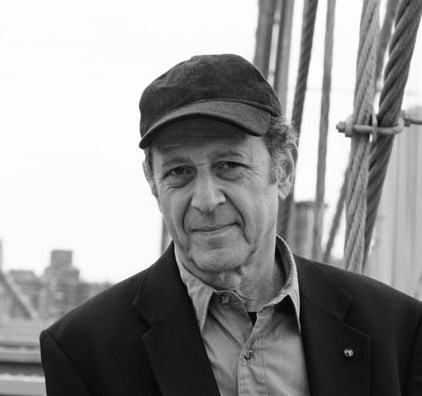Brilliant playing takes top prize in New World’s Pulitzer program
Three outstanding works comprised the New World Symphony’s Pulitzer Prize centennial concert on Sunday afternoon. The history of the Pulitzers for music has been uneven at best. While many distinguished American composers received the award in the late 1940’s and 50’s, some justly forgotten composers were also singled out for the honor. Roy Harris and David Diamond, two of America’s finest symphonists, never received a Pulitzer. When atonal composers took over the nation’s conservatories and university music departments in the 1960’s, the Pulitzers followed suit, awarding the Prize to frequently arid academic works.
In recent years that trend has abated to a large extent and several worthy scores have been honored. The three composers represented on Sunday’s concert all greatly deserved the prize.
Prior to the performance of his Tempest Fantasy, the 2004 Pulitzer winner, composer Paul Moravec took the stage at the New World Center and delivered an enlightening preview of his score with the musicians playing excerpts from each of the work’s five movements.
Moravec has forged his own musical language. At once accessible, yet challenging, there is a bristling and restless aura to Moravec’s fantasy on scenes and characters from Shakespeare’s The Tempest. Scored for violin, cello, clarinet and piano, the score is brimming with engaging melodic content and finely textured instrumental harmonics.
There is real emotion in Moravec’s superbly constructed series of character vignettes. Leaping clarinet lines and alternately sweet and gutsy violin strokes conjure up the spirit Ariel in the first movement. In the second section, Prospero is represented by dark lyricism with an undercurrent of anguish. A plethora of wit in the bass clarinet’s spooky tones and lumbering, heavy dance symbolizes the monster Caliban, Prospero’s servant and antagonist. The “Sweet Airs” of the fourth movement find violin and clarinet blending for the work’s most splashy moment of updated romanticism. A riotous finale reprises themes from the previous movements played at a high level of intensity. With a touch of jazz from the clarinet and piano, all the motifs coalesce into a satisfying coda.
Moravec’s score has been widely performed and for good reason. Both musically complex and enticing to the ear, the Tempest Fantasy is an outstanding 21st-century addition to the chamber music literature.
Moravec told the audience that the New World players’ performance was “a composer’s dream come true” and indeed the subtlety and brilliance of the playing would be hard to surpass. Dima Dimitrova’s luminous violin tone and fearless agility, even when playing on open strings, was first among equals. Daniel Parrette exhibited total command of the bravura clarinet writing, playing with focused tone and fine projection. The sudden jolts into the upper register were smoothly contoured and he made the quirky bass clarinet warbling in the Caliban movement sparkle with wry humor. Jacob Hanegan’s burnished cello sonority brought warmth to Prospero’s melancholy and John Wilson was alert to the gnarly changes of meter in the keyboard part. The players’ supple blending allowed individual voices to be clearly audible.
Steve Reich’s Double Sextet was awarded the 2008 Pulitzer. This twenty-minute trip through sophisticated minimalism finds Reich at his most hypnotic. Reich was one of the founding fathers of the minimalist movement. After writing numerous scores for his own ensemble of keyboards and percussion, he has embarked on increasingly intricate creations for more conventional orchestral, choral and chamber forces. The Double Sextet can be played either by six musicians and a taped track or by a full complement of a dozen players as at this performance.
In a brief video introduction, Reich described the work as “a sort of rock and roll piece.” Two pianos and two vibraphones act as the backup rhythm section while winds and strings offer short fragmentary snippets of dance like patterns. In the central slow section, these instruments play more expansive melodies and Reich proves that a confirmed minimalist can indeed write an appealing theme. The lightening finale exhibits the vibraphones in relentless, energetic romps.
In an outstanding ensemble effort, special credit goes to Stephen Kehner and Daniel Morris for terrific articulation of the rhythmically daunting vibraphone parts and pianists Yu “Dean” Zhang and Ciro Fodere for their full-force volleys at rapid speed.
Aaron Copland’s Suite from Appalachian Spring, the Pulitzer winner of 1945, is a thrice-familiar concert work but this performance came with a twist. Instead of the often played full orchestral version, Copland’s original scoring for thirteen instruments was presented. As conceived for Martha Graham’s ballet, this leaner chamber version is devoid of the bombast and sentimentality that larger forces sometimes project on Copland’s folk-infused palette.
With only winds, strings and piano, textures were transparent and delightfully vivid in Sunday’s performance, which was performed without a conductor. Particularly fine solo work from flutist Masha Popova, clarinetist Ran Kampel and bassoonist Sean Maree highlighted a refreshingly straightforward reading. Aya Yamamoto brought strength to the darting and busy piano lines. The variations on the Shaker melody “Simple Gifts” were broadly shaped and the coda was wonderfully spacious with Popova’s silvery flute striking the final serene tones.
The concert was webcast live and will be archived and available for viewing in December at the New World’s educational site musaic.nws.edu.
The New World Symphony’s chamber music series continues with works by Handel, Fasch, Telemann, Torelli, C.P.E. Bach And J.S. Bach featuring guest cellist René Schiffer 2 p.m. December 18 at the New World Center in Miami Beach. nws.edu; 305-673-3331.
Posted in Performances
Leave a Comment
Mon Nov 21, 2016
at 11:41 am
No Comments







